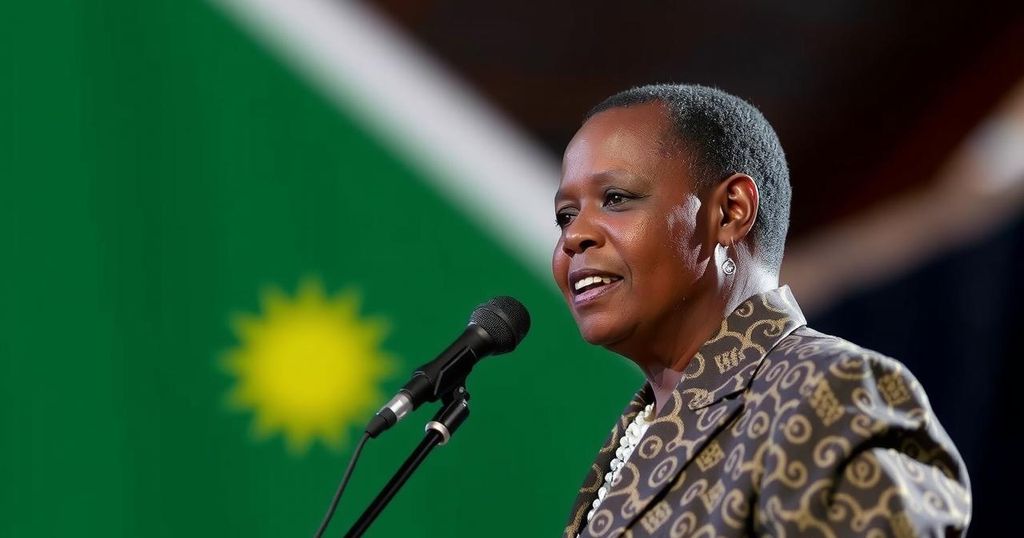Botswana’s Critical Election: A Decision Point for Governance and Economy
Botswana is poised to decide its future in an election that may extend the rule of the Botswana Democratic Party (BDP), in power for 58 years. President Mokgweetsi Masisi seeks a second term amidst economic challenges stemming from reduced diamond demand. The BDP has promised economic diversification in response to rising unemployment and public criticisms, while three candidates challenge Masisi for presidency. Polls are expected to yield results shortly after voting concludes.
Botswana has entered a significant electoral phase as its citizens go to the polls to determine the political future of the nation and whether the Botswana Democratic Party (BDP), which has held power for 58 years since the country’s independence from Britain in 1966, will maintain its position for another term. On October 30, 2024, President Mokgweetsi Masisi, who previously served as a high school educator and a United Nations employee, aims to secure a second and final term in office amidst increasing economic pressures that prompted calls for policy reform. The BDP, recognized for promoting stability and democratic governance, faces contemporary challenges such as rising unemployment rates, particularly among the youth, reaching 27% in a country boasting a population of approximately 2.5 million people. The reliance on diamond exports, accounting for over 80% of Botswana’s export revenue, has also come under scrutiny as global demand has diminished. In response, the BDP has acknowledged the need for economic diversification and proposed initiatives to enhance agriculture, tourism, and mineral processing. Masisi’s main opponents comprise Duma Boko from the Umbrella for Democratic Change party, Dumelang Saleshando representing the Botswana Congress Party, and Mephato Reatile from the Botswana Patriotic Front. The impending election results are anticipated soon after polls close, marking an intricate period in Botswanan history where a transition of leadership could reshape the future of this prosperous yet currently challenged nation.
Botswana, often lauded as a model of democracy and stability in Africa, faces a critical juncture as it approaches the electoral decision regarding its long-standing ruling party, the Botswana Democratic Party. Since gaining independence, the BDP has been a dominant force in the nation’s politics, credited with fostering a robust societal framework and one of the highest living standards in the region. However, recent economic downturns due to a slump in diamond demand have led to a reassessment of governmental policies and increased calls from the populace for economic diversification. As the country moves toward the polling day, the political landscape has shifted, with opposition parties gaining traction amid concerns over the BDP’s handling of economic issues. The former president and founder of the BDP, Ian Khama, has emerged as a vocal critic, intensifying the competition for Masisi. Overall, the current election not only serves as a referendum on the BDP’s governance but also on Botswana’s socio-economic resilience and adaptability in an evolving global economy.
In summary, the forthcoming elections in Botswana epitomize the significant crossroads faced by the nation within a broader socio-political context. Voters will determine whether the BDP continues its lengthy tenure or if alternate leadership emerges during a period marked by economic uncertainties and calls for change. The outcome will potentially reshape economic policies and governance in Botswana, reflecting the electorate’s aspirations and concerns moving forward.
Original Source: apnews.com




Post Comment